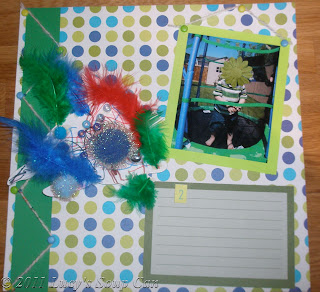My bookclub discussed, "Cutting for Stone" by Abraham Verghese this week. It received some mixed reviews.
First off, it's a long book so not everyone got through it.
Second, there is a lot of focus on female reproductive issues. I always get my back up when this comes from a male author, but in this case Verghese did not try to write about a woman's experience with these issues. Instead, they were written about from a medical standpoint.
As for the story itself, I was pulled in right away. Lots of intrigue. It's largely about characters who get thrown together and separated by medical dramas. Verghese includes a lot of graphic and detailed medical descriptions, which I enjoyed, but others felt they were slogging their way through those parts. Still, the themes of separation, redemption and reconciliation come through.
I found the focus on smells to be interesting. We later learn a potential cause for this heightened sense of smell in Marion, the main narrator of the story, but the descriptions added another layer of interest to the settings. Another way to describe a scene.
There were some great characters. I found myself partial to Hema and Ghosh and their relationship in particular, but I think my favorite character was Matron. I found her words to be very wise. My favorite quotes from the book were almost always from her.
I thought Genet could be used as an illustration of how we as parents can tear down our children and stunt their potential. Her story left me dissatisfied. As the reader I didn't feel like I got closure, and I didn't feel that Marion did either.
Lack of closure is my one big complaint about the book. I found the scope of the story, in particular the medical side of it, to be so broad and descriptive that the characters and their relationships suffered a bit.
In the end though, we all felt this book was worth reading and recommending to other people.
Favorite Quotes:
"Why must I do what is hardest?"
"Because Marion, you are an instrument of God. Don't leave the instrument sitting in its case, my son. Play! Leave no part of your instrument unexplored. Why settle for 'Three Blind Mice' when you can play the 'Gloria'?"
"We come unbidden into this life, and if we are lucky we find a purpose beyond starvation, misery, and early death which, lest we forget, is the common lot."
"As she bent over the child she realized that the tragedy of death had to do entirely with what was left unfulfilled."
"Make something beautiful of your life."
"Wasn't that the definition of home? Not where you are from, but where you are wanted?"
"Doubt is a second cousin to faith. To have faith we must suspend our disbelief."
"She remembered, too, how in her first days in Addis, when things had looked so bleak, so terrifying, so tragic with Melly's death-it was at those moments that God's grace came, and that God's plan was revealed, though it was revealed in His time. "I can't see it, Lord, but I know You can," she said."
"God will judge us, Mr. Harris, by" - her voice broke as she thought of Sister Mary Joseph Praise - "by what we did to relieve the suffering of our fellow human beings. I don't think God cares what doctrine we embrace."











